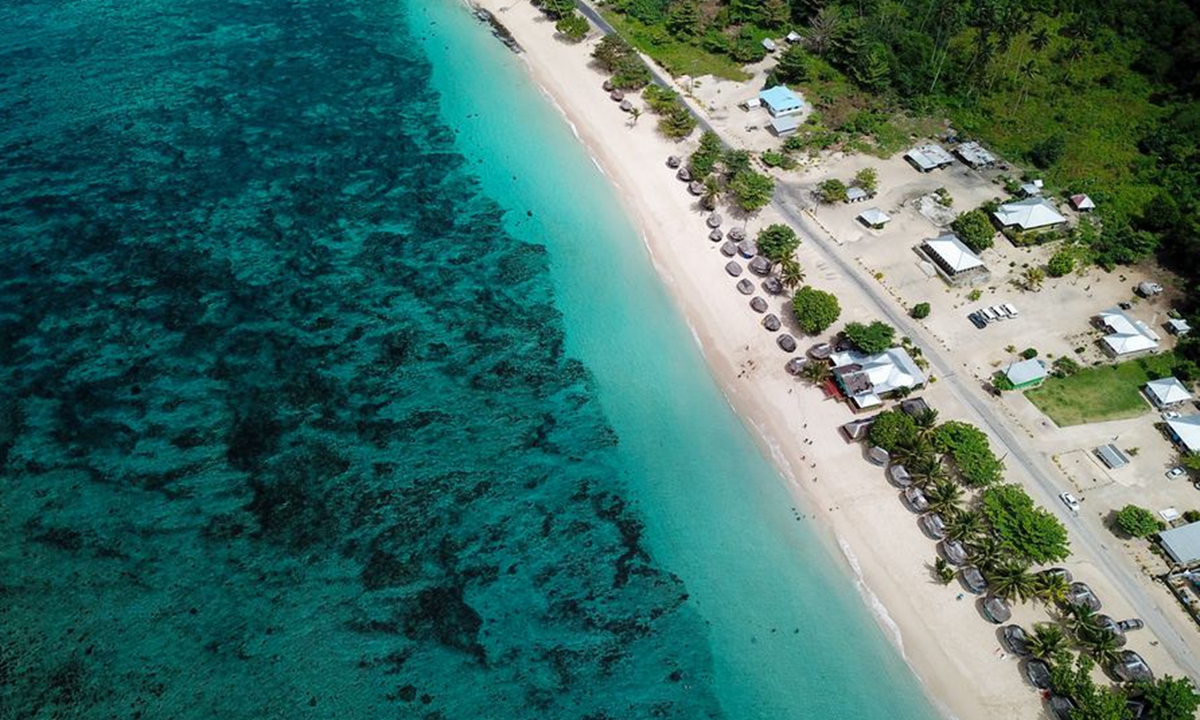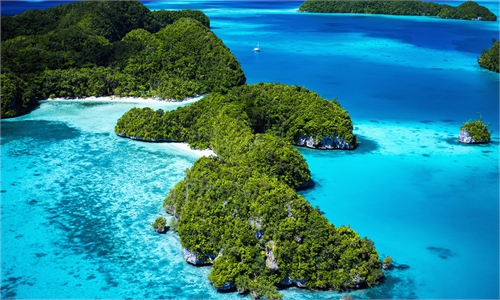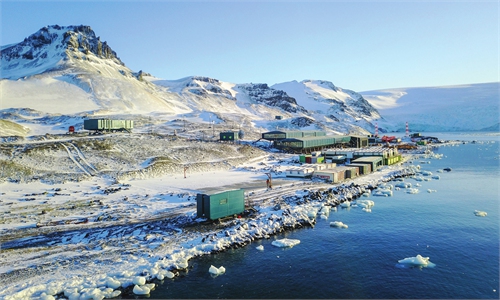Even with $1bn plan, insincere US can hardly lure Pacific Island countries into its camp

Photo taken on Oct. 19, 2019 shows a view of the Lalomanu beach on the southern part of Upolu Island, where Samoa's capital Apia is located. Photo: Xinhua
Two US-based scholars published an article in The Guardian Tuesday, arguing that a bill advocating more US investment in Pacific Island nations is "a flawed foreign policy initiative." The authors wrote, "The initiatives are conceived in zero-sum terms, designed to undermine Chinese influence rather than address the critical needs and priorities of island nations themselves."
The bill they mentioned in the article is "The Boosting Long-term US Engagement in the Pacific Act," or "BLUE Pacific Act." It was originally introduced by Democratic Congressman Ed Case of Hawaii last year, and a new version was introduced in May. The bill proposes to provide $1 billion annually to assist Pacific Island countries in the next five years, covering issues such as democratic governance, economic development, public health, and climate change.
The current top concerns of Pacific Island countries are climate change and the COVID-19 vaccines. The former is closely related to the survival of these countries, while the COVID-19 affects the normal functioning of their societies and the safety of their people's lives. Both issues also have a direct impact on the economic development in these countries. Pacific Island nations generally have a weak economic base and a simple industrial structure. Tourism is the economic pillar of many of these countries. But tourism has come to a complete halt under the pandemic and still has not fully resumed, so several Pacific Island countries are actually in deep trouble.
Due to these realities, Pacific Island countries do not easily take sides between China and the US, or the West. Western countries like the US are experiencing a slow economic recovery, social unrest, and rampant epidemic. These problems are making it difficult for the West to help these island countries on their own.
Besides, although Australia and New Zealand have provided a lot of aids to Pacific Island countries in the past, they aimed to support these countries to follow Western values, democratic system, and government governance.
As a result, the Pacific Island countries, which are in urgent need of economic assistance, could only gain limited benefits from the West. On the contrary, China has come with real money and real projects. Cooperation with China can truly promote the development of these Pacific Island countries, especially their economic development. Overall, it will be hard for the US to force Pacific Island countries to take sides by increasing its input into these nations.
From this point of view, the US and other countries do not really pay attention to the development of Pacific Island countries. According to The Guardian article, "the explicit purpose of this increased engagement is to counter challenges by China to US preeminence in the Pacific and beyond." The US has ignored the real needs of these countries and put its security concern above their interests. Washington regards these countries as pawns in its game against China and uses them to safeguard its own interests. This is the consistent style of some Western countries that are condescending, self-centered, and value-oriented.
However, I doubt whether the "BLUE Pacific Act" will be passed and whether the US is willing to spend around $1 billion every year on the Pacific Island countries.
Given these countries' close ties with Australia and New Zealand, the US actually hopes the latter two countries can continue such relations. This way, it can spend as little as possible on these island nations. Meanwhile, the US has encountered many internal and external problems and its society is highly divided. In this context, Washington may be reluctant to invest more in these countries.
More importantly, the Pacific Island countries are not that important in the strategy of the US, at least not as important as the entire Pacific region. Factors such as limited resources, remote location, and small economies all determine that these Pacific Island countries will unlikely become the hub of the US' geopolitical game against China. Therefore, Washington will not be really concerned about these countries.
There have always been voices in the US calling on Washington to ramp up its presence in the Pacific Island countries in a bid to check and balance China's increasing influence in the region. But Washington will not be anxious about Beijing's presence in these nations, as long as Beijing does not engage in military projects there, such as constructing military bases. In conclusion, we should not overestimate the significance of Pacific Island countries for the US.
The author is a professor at the Guangdong Research Institute for International Strategies. opinion@globaltimes.com.cn



